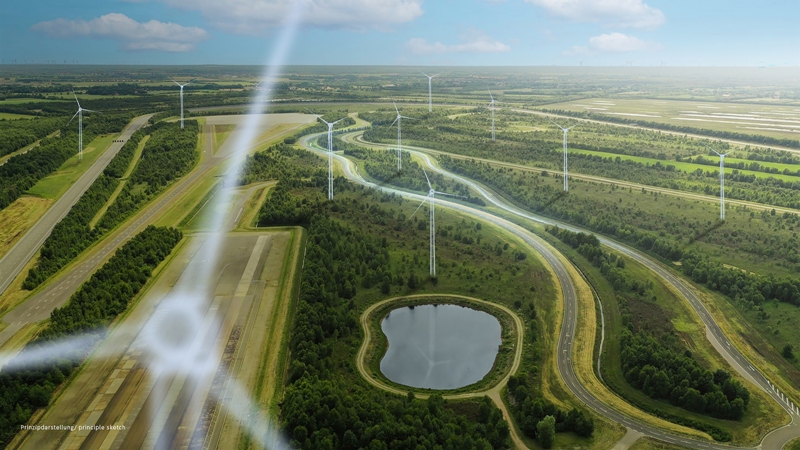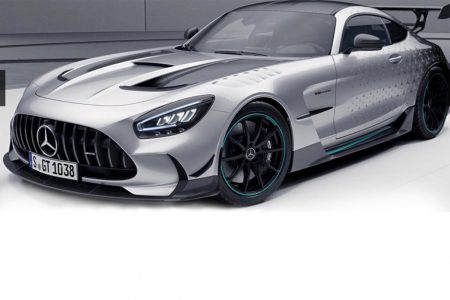
Mercedes-Benz to install wind turbines at its Papenburg test track in Germany
German energy park developer UKA (Umweltgerechte Kraftanlagen GmbH & Co. KG) has been awarded a long-term contract worth hundreds of millions to erect approximately 20 wind turbines by middle of the decade. The planned wind farm with a capacity of more than 120 MW will be operational on the site as part of a power purchase agreement (PPA) sufficient to cover around 20 percent of the annual electricity requirements of Mercedes-Benz Group AG in Germany. The installation of photovoltaic systems on the test track is also being examined. The approval process for the wind farm is to start before the end of this year. Subject to the necessary regulatory approvals, construction of the wind turbines could begin as early as next year, and the wind farm could become operational in 2026.
The approximately 800-hectare Papenburg test track has been an integral part of the company’s research and development activities since 1998. With this project, Mercedes-Benz is expanding its green power portfolio in the medium term and at the same time actively supporting the expansion of onshore wind energy in Germany. The planning for the implementation of the wind farm project by UKA and the ecologically sustainable use of the area is being carried out in close collaboration with the relevant local authorities and local stakeholders.

The goal of Mercedes-Benz is to at least halve CO₂ emissions per passenger car over the entire lifecycle by the end of this decade, compared to 2020. The most important factors for this are electrification of the vehicle fleet, vehicle charging with green electricity, improving battery technology and extensive use of recycled materials and renewable energies in production. Since the beginning of 2022, the worldwide production plants wholly owned by Mercedes-Benz have been operating with a neutral CO₂ balance. Today, 45 per cent of the total energy consumption in production is covered by electricity from renewable sources, largely thanks to a 100 percent green power supply. The company intends to increase the share of renewable energies in the total energy consumption of its own production locations to 70 per cent by 2030, not least by expanding on-site generating capacity. To this end, Mercedes-Benz is focusing on the expansion of photovoltaic systems at its own locations: Up to 140 megawatts peak (MWp) are to be installed by 2025. This corresponds to one million square metres of new solar panels. Another focus of the company’s energy strategy is the expansion of the energy portfolio to include wind energy from onshore and offshore wind farms. The goal for all Mercedes-Benz production plants worldwide is to operate wholly with renewable energies and no CO₂ emissions by 2039.
Information Source: Read More “
Energy Monitors , Electric Power , Natural Gas , Oil , Climate , Renewable , Wind , Transition , LPG , Solar , Electric , Biomass , Sustainability , Oil Price , Electric Vehicles,

